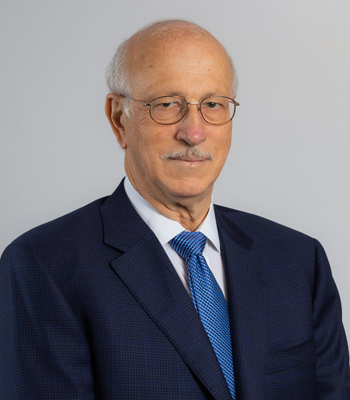WATCH HERE: Adam Rose honored by the Society of Risk Analysis for substantial achievement in science and public policy relating to the economics of risk and resiliency analysis, in addition to substantial service to the SRA.
CREATE Senior Research Fellow and Director Emeritus Adam Rose has been selected as a Fellow of the Society for Risk Analysis (SRA), an international 2,000-member, interdisciplinary, scholarly society. Dr. Rose’s fellow nomination was submitted by the SRA Economic and Benefits Specialty Group and the Resilience Specialty Group, as well as by CREATE Senior Research Fellow and Director Emeritus Detlof von Winterfeldt. Professor Rose was cited for his research in economic analysis and resilience to disasters.
“Dr. Rose is an exceptional scholar,” said CREATE Director Randolph Hall. “His work demonstrates the importance of understanding the interlocking nature of disasters, showing how disruption can amplify through the economy with devastating effects.”
Dr. Rose led the development of CREATE’s comprehensive Economic Consequence Analysis tool (E-CAT), which has been used to analyze a broad range of potential and past disasters. His work incorporates behavioral considerations and resilience, including exaggerated responses (primarily stemming from fear) that can exacerbate the direct impacts of human-caused and natural disasters, as well as various tactics that can make for more efficient recovery from disasters. Professor Rose has embedded these considerations in computable general equilibrium (CGE) modeling , the state-of-the-art approach for economy-wide modeling.


Professor Adam Rose
“Professor Rose has been a leader at CREATE, USC, and worldwide in economic consequence analysis, resilience research, and the impact of behavior changes in response to disasters” said von Winterfeldt. “This distinguished award by the Society of Risk Analysis is an overdue recognition of his prominence and leadership in this field.”
Rose’s research teams have applied the CGE framework to more than a dozen case studies, including economic impacts of the World Trade Center attacks, major earthquakes, floods, cyber-attacks, and the COVID-19 pandemic. Rose has also developed a reduced-form approach that translates CGE results into user-friendly regression analysis equations within the decision-support tool E-CAT.
Rose has received several other honors for his research in recent years, including the Department of Homeland Security/CREATE Transition Product of the Year Award, two best journal article awards, and the Distinguished Research Award from the International Society for Disaster Risk Management (IDRiM), where he also served as President. Additionally, he is an elected Fellow of the Regional Science Association International (RSAI).
Upon receiving word of the SRA Fellow designation, Rose stated: “I’m gratified to be acknowledged for my research contributions in risk and economic analysis. I’m also honored to be in the company of other USC CREATE faculty who’ve received this honor, including USC’s Detlof von Winterfeldt and Wändi Bruine de Bruin and External Fellows Paul Slovic and Vicki Bier, as well as long-time CREATE Advisory Board member Ralph Keeney.”
In addition to serving as CREATE Fellow, Dr. Rose is a Research Professor in the Price School of Public Policy. For more information on Dr. Rose, see his profile on CREATE’s fellows page.
More Information on Dr. Rose
E-CAT has been extended to GRAD-ECAT for chemical/biological/radiologic/nuclear threats by CREATE External Senior Research Fellow Peter Dixon . Dixon and Rose have also developed NECAT for nuclear attacks for the Defense Threat Reduction Agency (DTRA), and Rose – in conjunction with Fred Roberts, Director of the DHS Command, Control and Interoperability Center for Advanced Data Analysis (CCICADA) at Rutgers University – developed the tool MCAT for cascading and compounding maritime supply-chain disruptions.
Rose is considered the father of economic resilience. He has provided basic definitions, theoretical grounding, and empirical measurement for more than a dozen resilience tactics to cope with input supply disruptions (read more here and here). At the microeconomic level (individual business or household), this framework is grounded in economic production theory; at the macro level, it typically involves the application of CGE modeling.
Rose, often in conjunction with CREATE Research Fellow and Price School Research Associate Professor Dan Wei, has estimated the effectiveness of resilience in coping with major disasters, including 9/11, major port disruptions, floods, tsunamis, and pandemics. With former Price School PhD grad and CREATE research assistant Noah Dormady, now an associate professor at the Glenn College of Public Affairs at The Ohio State University, Rose developed the Business Resilience Calculator (BRC), a decision-support tool intended to enable businesses to quickly evaluate their resilience capability and set forth the course to improve it.
Rose is continuing his research in the behavioral realm. His work addresses the large, but difficult to measure, behavioral impacts often omitted in ordinary benefit-cost analysis. He is also continuing his research leadership on a DoD Minerva social science research grant on the development of an analytical capability to promote the development of viable, resilient and sustainable logistics systems in post-conflict zones.
Rose’s other major research interests are energy and climate change, performed in conjunction with his role as a USC Schwarzenegger Institute Fellow. He is working on projects related to solar energy and, along with Wei, recently completed a study on offshore wind development in California. He also plans to ramp up his research on the implementation of the Paris agreement to reduce greenhouse gases.
Posted November 8, 2022
